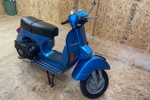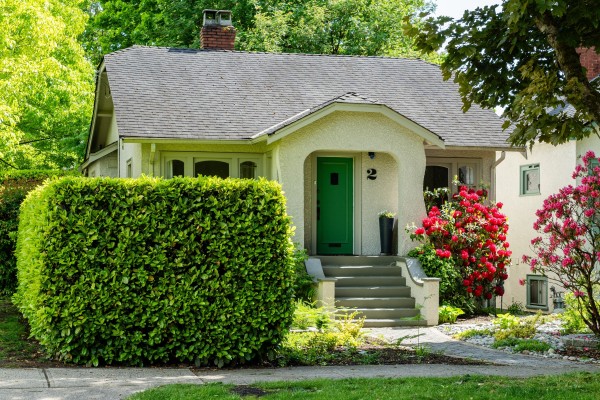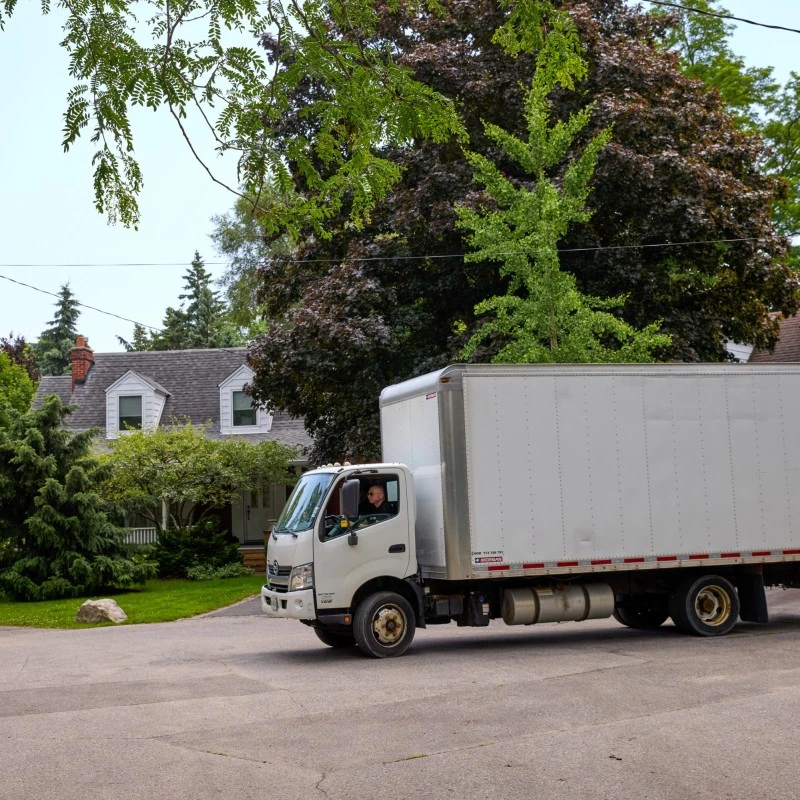The Cost of Living in Vancouver (2025)


Surrounded by beaches, ocean views and mountains in every direction, Vancouver is a dream city to live in for those who appreciate natural beauty. It’s also a bubbling, multicultural metropolis and film-industry hot spot. The temperate climate means that temperatures rarely dip below freezing, making Vancouver the ultimate place to be for so many Canadians.
Vancouver’s strong points and desirability have driven the cost of living up significantly, and the city now ties with Toronto as the two most expensive cities in Canada.
Vancouver’s cost of living needs to be considered in detail, before you plan your move.
Reasons to move to Vancouver

Before letting Vancouver’s high rental prices and property taxes intimidate you, consider what the city has to offer in terms of employment. From this standpoint, you can determine how much you need to earn to live comfortably in Vancouver.
Outdoor recreation and tourism are huge in Vancouver, with visitors coming from all over the world to enjoy the surrounding beaches, inlets, mountains and rainforests. The film industry has been booming for years, giving Vancouver the nickname “Hollywood of the North”. Vancouver is one of Canada’s tech hubs, and the industry is growing exponentially every year. The city’s various sustainability initiatives reflect the environmental values of many Vancouver residents and provide hundreds of jobs in the green industries.
Salaries in Vancouver
In Vancouver, the average annual income is CA$71,000, while the average household income is CA$117,300.
What's different about Vancouver?
 Vancouver averages 161 rainy days per year, with the annual rainfall of Vancouver at 146 cm. Tucked closer to the mountains, North Vancouver gets an estimated average rainfall of 252 cm.
Vancouver averages 161 rainy days per year, with the annual rainfall of Vancouver at 146 cm. Tucked closer to the mountains, North Vancouver gets an estimated average rainfall of 252 cm.
While this can seem like an overbearing amount of rain, lately it has been regarded as a blessing. Nowadays, much of British Columbia’s interior is ravaged by wildfires during late July and August. B.C.'s coast (including Vancouver, Victoria, and surrounding areas), is less susceptible to wildfires due to the amount of moisture in the land and forests.
The Economist Intelligence Unit conducted a survey whose results rank Vancouver as the third most livable city in the world, and the 10th cleanest city in the world.
Cost of living in Vancouver
Accommodation ranks highest on the list of expenses in Vancouver. The city’s desirability—combined with the vacation rental boom and foreign ownership—has caused Vancouver rental and property rates to skyrocket.
Renting in Vancouver
Vancouver is home to 5 public universities and several more private universities and colleges. Because of this, finding a rental in the months of August and September is always a scramble, as students rush in to scoop available accommodations.
Whether you are moving to Vancouver for work or applying to study at one of its top universities, the city has an extensive public transit system that makes it easy to access most suburbs.
If accessibility, diversity and culture are what you are looking for, here are the top neighbourhoods for renting in Vancouver:
-
Coal Harbour
-
Chinatown
-
Commercial Drive
-
Gastown
-
Granville Island
-
Granville Street
-
Kitsilano West Broadway
-
Lower Lonsdale
-
Robson Street
-
Punjabi Market
-
South Granville
-
South Main
-
West End
-
Davie Village
-
Yaletown
Vancouver is large and sprawling and has many main arteries connecting its neighbourhoods. Spend some time researching transit routes and landmarks before deciding which location to live in.
The average monthly rent for an apartment in Vancouver is quite high at CA$2,775. Of course, this depends on location, with rental apartments in nearby Surrey averaging CA$1,888.
Many choose the more affordable option of moving into a shared house, with roommates. The best platforms to peruse rental listings include:
-
Craigslist
-
Kijiji
-
Facebook Marketplace
-
Roomies.ca
-
Rentals.ca
If you choose to rent in Vancouver, familiarise yourself with the laws in place that protect you as a tenant before signing your rental contract.
Buying property in Vancouver

Vancouver has always been one of the most expensive cities in Canada to buy a home. In the ten years between 2012 and 2022, the median Vancouver house price shot up by CA$1,205,000 (from CA$855,000 to CA$2.06 million). Now in 2025, the average Vancouver home is worth CA$1,208,415.
Prices are more reasonable in some of Vancouver’s more underrated areas such as Langley, Surrey, New Westminster, Coquitlam and Port Moody. The price to buy a home in any of these areas is about half the price of homes in more popular Vancouver neighbourhoods such as Kitsilano, West Vancouver and Gastown.
Vancouver has the highest real estate prices in all of Canada. It’s the third most expensive major metropolitan real estate market after Hong Kong and Sydney, Australia.
Vancouver’s neighbourhoods of interest
Metro Vancouver consists of 21 municipalities, including the City of Vancouver. Here are some of the most popular areas in Vancouver:
Commercial Drive a.k.a. The Drive
Commercial Drive, or "The Drive," is a lively 22-block neighbourhood near downtown Vancouver. The Drive is a neighbourhood with some “edge”, and is known for its arts scene, unique shops, multicultural restaurants, and live music. It features Little Italy, historic Queen Anne-style homes, and a bohemian vibe, with regular events at Grandview Park. The Drive is also home to John Hendry Park and Trout Lake, offering a bit of peace within the busy city. There’s also a large farmers' market on Saturdays from April to October.
Rental apartments range from CA$2,700 and up per month. The average list price for a home is CA$1,100,000.
Mount Pleasant/South Main
With a name like that, you can’t go wrong. Mount Pleasant is a hipster haven just south of downtown Vancouver and attracts creative types with its galleries, breweries, and boutiques. The area is known for its restaurants, especially Asian cuisine. It's also a hot spot for craft beer enthusiasts, offering countless breweries and tasting rooms. You also can find an array of coffee roasteries and independent stores selling vintage clothing, used records, and antiques.
Apartment rentals at Mount Pleasant/South Main start at CA$2,620 and property prices average at CA$956,000.
West End
Vancouver’s urban West End is infused with natural beauty. The neighbourhood is located between downtown and the beaches of English Bay, with easy access to Stanley Park. Davie Village is the lively heart of Vancouver's LGBTQ+ community. The area offers a mix of both heritage homes and high-rises.
Apartment rentals in the West End start at CA$2,555 and property prices average at CA$1,288,000.
Yaletown
Yaletown is a hip neighbourhood with a working-class past and modern amenities. It was once a Canadian Pacific Railway hub. Now it’s a trendy place to be, featuring residential lofts, sidewalk cafes, shopping and dining. Waterfront parks like David Lam Park and George Wainborn Park border Yaletown, all connected by the Seawall.
Apartment rentals in the Yaletown area average at CA$2,745 and property prices average at CA$939,474.
Coal Harbour
Coal Harbour was once a shipyard and is now a prime Vancouver neighbourhood because of its downtown location and proximity to Stanley Park. Coal Harbour hosts landmarks like Canada Place, the Vancouver Convention Centre, and Jack Poole Plaza. The neighbourhood offers stunning views of Burrard Inlet and access to the Seawall for walking and cycling. It's also home to a busy float plane terminal, marinas, and the cruise ship terminal.
Apartment rentals in Coal Harbour start at CA$3,665 and property prices average at CA$1,700,000.
Things to do in Vancouver

Even though it’s expensive to live in Vancouver, there are plenty of things to do to soak up what the city has to offer.
Stanley Park
Famous Stanley Park is full of lush greenery and opportunities to walk or bike the Seawall, visit the Vancouver Aquarium, or go to the beach. Here are the various entry fees for the Vancouver Aquarium:
-
Adults (13-64 years old): CA$41.95–CA$57.95
-
Annual Membership (13-64): Starts at CA$80
-
Discounts available for seniors and students
Grouse Mountain
Head to Grouse Mountain to ride the Skyride gondola, hike the Grouse Grind, or visit in the winter for skiing and snowboarding adventures. The cost for a round-trip on the Skyride Gondola, including access to seasonal activities on Grouse Mountain in 2025 is as follows:
-
Adults (18-64 years): CA$82
-
Seniors (65+ years): CA$72
-
Youth (13-17 years): CA$62
-
Children (5-12 years): CA$42
-
Toddlers (0-5 years): Free (ticket required)
- Family (2 Adults and 2 Children): CA$209
Museum of Anthropology
The Museum of Anthropology is a world-renowned museum on the UBC campus, where you can learn about Indigenous cultures and check out mind-blowing collections of art and artefacts. Here are the entry costs:
- Adult (19–64)
- Senior (65+): CA$22
- Student (19+ with valid ID): CA$22
- Youth (6–18): CA$10
- Child (0–5): Free
- Indigenous peoples: Free
- UBC students, staff, and faculty: Free
- MOA Members: Free
- Access Pass (unlimited admission for one year): CA$35
- Thursday evenings (after 5 pm): Half-price admission
Other notable places to explore are Granville Island, historic Gastown, The Vancouver Art Gallery, English Bay Beach, and Science World.
An average ticket to the cinema in Vancouver costs around CA$11.00–CA$13.00 for adults. Hockey game tickets cost anywhere from CA$110.00 to CA$1000 per adult, depending on the importance of the game.
Vancouver events
 There’s no shortage of excitement in Vancouver, and the city’s annual events are diverse enough to please everyone. Here are a few of the gems offered to the public:
There’s no shortage of excitement in Vancouver, and the city’s annual events are diverse enough to please everyone. Here are a few of the gems offered to the public:
Water Lantern Festival (September)
Watch the waters of False Creek transform into a twinkling wonderland as hundreds of participants release beautifully crafted lanterns onto the water, accompanied by an individual wish or prayer. Tickets in 2024 ranged from around CA$26 to CA$55, depending on when you purchased your ticket and whether you went for any additional packages (2025 tickets TBD).
Vancouver Pride Parade and Festival (August)
The city hosts one of the largest Pride celebrations in all of Canada, where you can see a parade, live performances and random activities all across the city, with Davie Village as the epicentre.
Vancouver Folk Fest (July)
Jericho Beach Park hosts this iconic festival featuring folk, roots, and international artists on multiple stages. Mention Folk Fest to almost anyone in B.C.—they will know what you are talking about. The ticket prices vary based on the day and type of ticket. Here's an outline of what the prices for 2024 were (2025 TBD):
Friday Evening (Advance Online)
- Adult: CA$75
- Senior (65+): CA$65
- Student (20+ with ID): CA$50
- Youth (13-19): CA$40
- Children (12 and under): Free with an adult
Saturday & Sunday (Advance Online)
- Adult: CA$125
- Senior (65+): CA$105
- Student (20+ with ID): CA$90
- Youth (13-19): CA$75
- Children (12 and under): Free with an adult
Family Pack
- Friday: CA$165
- Saturday or Sunday: CA$315
- Weekend: CA$600
- Evening passes for Saturday and Sunday are available for CA$60 in advance.
Bard on the Beach (June–September)
Vanier Park hosts a Shakespeare festival all summer—with performances in open-air tents and a stunning backdrop of surrounding mountains and ocean views. Tickets vary depending on the seating zone and the performance.
The 2025 Season Packs are now available for sale starting at CA$236 for the Regular Packs and CA$292 for the Premium Packs. These packs have four vouchers—one voucher to use at each of the four productions this season. Tickets will officially be on sale for Season Pack holders on March 26th and will be available for Flex Pack holders on April 2nd.
Pacific National Exhibition (August/September)
This massive event offers rides, games, live entertainment, agricultural exhibits, and the famous SuperDogs show at Hastings Park. Ticket prices for 2024 were as follows (2025 TBD):
- Adults (ages 19-64): $25 at the gate or $20 purchased online in advance.
- Youth (ages 13-18) and Seniors (65+): $16 at the gate or $14 purchased online.
- Children (ages 4-12): $9 at the gate or $7 if purchased online.
- Children under 3: Free admission.
- Discounts were available on certain days and for specific groups, and there was a season pass option for $75.00.
Chinese New Year Parade (January/February)
Celebrating the Lunar New Year, this colourful parade through Vancouver’s Chinatown features traditional lion dances, cultural performances, and strong community spirit.
The cost of food in Vancouver
 Restaurants, cafes, bistros and breweries are a huge part of Vancouver culture and will use up a lot of your budget, if eating out is your kind of thing.
Restaurants, cafes, bistros and breweries are a huge part of Vancouver culture and will use up a lot of your budget, if eating out is your kind of thing.
Grocery costs
Depending on how many people are in your household, the average cost of groceries per month in Vancouver ranges from $375 to $600.
Vancouver is full of health-conscious types. If you prioritise local, organic groceries, expect your spending to land a bit higher than average.
Cost of dining out
Did we mention that eating out is a major part of the culture? According to data compiled by Google Maps, there are currently 2827 restaurants in Vancouver. Prices vary depending on what type of meal you are craving. We’ve compiled a short list of Vancouver culinary favourites:
Cheap eats $20–$25:
-
Ramen Danbo – Ramen
-
The Naam – Open 24/7 serving hearty vegetarian and vegan dishes.
-
Tacofino – Mexican street food
-
Sushimoto – Affordable sushi
Mid-range $25–$45:
-
Nuba – Lebanese dishes
-
The Acorn – Vegetarian and vegan cuisine
-
L’Abattoir – French-inspired dishes with a focus on local ingredients
-
Bao Bei – Modern Chinese food with a unique twist
-
Fable Kitchen – Farm-to-table comfort food
Fine dining $55+:
-
Blue Water Cafe – Fresh seafood and sophisticated atmosphere
-
Le Crocodile – Classic French cuisine
-
Miku – Aburi (flame-seared) sushi and upscale Japanese cuisine
Getting around Vancouver
 Vancouver is a city that spreads far and wide, and traffic is congested more often than not, especially during rush hours. Luckily there are efficient options for public transit to get you from A to B.
Vancouver is a city that spreads far and wide, and traffic is congested more often than not, especially during rush hours. Luckily there are efficient options for public transit to get you from A to B.
Vancouver’s public transportation system is managed by TransLink. Transit passes are affordable and convenient.
-
The Skytrain is a rapid transit system that travels along tracks above the entire city. It has three main lines: Expo, Millennium and Canada.
-
The Seabus is a passenger ferry that connects downtown with the North Shore, crossing Burrard Inlet.
-
An extensive network of city buses go everywhere, with some routes running all night.
-
The West Coast Express is a commuter train service that connects Vancouver with the Fraser Valley.
TransLink’s Compass Card system makes paying for fares easy. You can load your card with funds at kiosks in every Skytrain station. Schedules and route information can be found on the TransLink website or transit apps.
|
Service |
Zones |
Adult Fare |
Concession Fare |
|
Bus |
1 Zone |
CA$2.60 |
CA$2.15 |
|
SkyTrain and Seabus |
1 Zone |
CA$2.60 |
CA$2.15 |
|
2 Zones |
CA$3.85 |
CA$3.15 |
|
|
3 Zones |
CA$4.90 |
CA$4.35 |
Parking in Vancouver
Street parking
The rates typically range from $1.00 to $6.00 per hour, depending on area and time of day.
Payment can be made at metres using coins, credit/debit cards, or on mobile apps like PayByPhone.
Metered parking usually operates from 9 AM to 10 PM, Monday through Saturday. Some areas might have restricted parking times on Sundays or holidays.
Public parking lots
Generally, rates range from $2.00 to $6.00 per hour. Daily rates can be around $15.00 to $30.00, depending on the location.
Many public parking lots are located in downtown and popular areas—look out for signs indicating where they are.
Residential parking zones
Some residential areas require permits for parking. These are typically for residents, but visitor permits are also available.
These zones often have specific hours when non-permit parking is not allowed, usually during the day or evening.
Parkades
Rates for parkades can be higher—around $10.00 to $40.00 per day, depending on the location and duration.
Most parkades are open 24/7, but some might have specific entry/exit times.
What do our customers say?


![How much do you need to earn to live comfortably in Vancouver? [2025] How much do you need to earn to live comfortably in Vancouver? [2025]](https://cdn.topmove.ca/image/blog/7036030cc91de9cff4153dc88aa88f85.jpeg)
![How much do you need to earn to live comfortably in Vancouver? [2025] How much do you need to earn to live comfortably in Vancouver? [2025]](https://cdn.topmove.ca/image/blog/c3986fec8f0dddeaf633ce2539cac854.jpeg)

![The Cost of Living in Canada [2025] The Cost of Living in Canada [2025]](https://cdn.topmove.ca/image/blog/fd5e6f8de7a01a874376620f785ffdba.jpeg)
![The Cost of Living in Montreal [2025] The Cost of Living in Montreal [2025]](https://cdn.topmove.ca/image/blog/3d9ba911fae51ef6bf042019500f2c4b.jpeg)
![The Cost of Living in Toronto [2025] The Cost of Living in Toronto [2025]](https://cdn.topmove.ca/image/blog/ded0549bf885e2463f6b3516d9f8f021.jpeg)
![The cost of living in Ottawa [2025] The cost of living in Ottawa [2025]](https://cdn.topmove.ca/image/blog/05c56698337852b128efa8b1144e6466.jpeg)
![The Cost of Living in Victoria [2025] The Cost of Living in Victoria [2025]](https://cdn.topmove.ca/image/blog/012c60baf3a9dd52b2112857fe508e4c.jpeg)
![The Cost of Living in Calgary [2025] The Cost of Living in Calgary [2025]](https://cdn.topmove.ca/image/blog/44a5bcb6ebf6c658f5c5fe30ab7077c9.jpeg)
![The Cost of Living in Winnipeg [2025] The Cost of Living in Winnipeg [2025]](https://cdn.topmove.ca/image/blog/8874f5688baa4a1291d7eae6c507f8aa.jpeg)
![The Cost of Living in Edmonton [2025] The Cost of Living in Edmonton [2025]](https://cdn.topmove.ca/image/blog/85d8f0085c5276a3f3add5828109b82a.jpeg)














